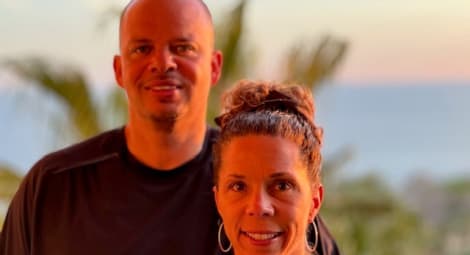Adjusting to life after stroke: Q&A with Dr. Emily Traupman

We talked to Emily Traupman, PhD, clinical psychologist at MultiCare Good Samaritan Hospital, about a class she’s teaching as part of the MultiCare Stroke Strides series running this fall.
What psychological and emotional issues do people tend to face after a stroke? What’s most common?
Stroke is abrupt, unplanned and often includes both physical and cognitive changes. It does not happen in isolation, meaning it involves multiple people within your family trying to adjust to this change at the same time.
Like any major change, such as divorce or the death of a loved one, there can be a number of common emotional reactions after experiencing a stroke, such as the initial shock, denial that there are changes or limitations, sadness, guilt, anger or frustration, grief and worry about the future.
Without resolution, some of these emotional experiences can lead to depression and anxiety. Up to one-third of patients experience major depression and a quarter of patients may suffer moderate to severe anxiety after stroke.
What are some methods for coping with these issues?
In the Stroke Strides class, we discuss the importance of hope in recovery, as well as things you can do to adjust:
- Acknowledging (negative) emotions
- Self management skills to increase control
- Remaining as active as possible
- Finding positive meaning
- Focus on things that are going well
- Reaching out for social support, connecting with family, friends and spiritual leaders
- Positive activity scheduling
- Basic self-care: Sleep, diet and exercise
- Using good communication skills with loved ones
Overall, focusing on the emotional aspects of this change early on is important because it helps you identify mood or anxiety concerns.
If patients are concerned they are experiencing depression or anxiety, I encourage them to make an appointment with their primary care provider or mental health provider.
There are several evidence-based psychotherapies to assist mood, anxiety and adjustment including cognitive-behavioral therapy, behavioral activation, and problem solving therapy.
For many, talking with others who have experienced stroke can also be quite helpful to support emotional adjustment, so we encourage patients and families to attend stroke support groups such as Stroke Strides or online support options (you can look on stroke.org for a group near you).
What have the most successful patients done to get through recovering after stroke?
Some of the most successful patient adjusting to life after stroke are fully engaged in their rehabilitation, both working hard in therapies and asking questions to educate themselves.
The most resilient folks tend to be open to learning new skills and new ways of doing things, set realistic short and longer term goals, track their progress, spend time with loved ones, stay active doing things they previously enjoyed to bring meaning to their lives, and seek help as soon as they noticed emotional concerns.
Interested in Stroke Strides?
Stroke Strides is a series of classes designed for stroke survivors, their family members, caregivers and friends, and anyone who is interested in learning more about stroke prevention and recovery. Each session includes a guest speaker, support materials, and opportunities for discussion and socialization. Participants are encouraged to attend all sessions, though this is not required.
Sign up for Stroke Strides classes



